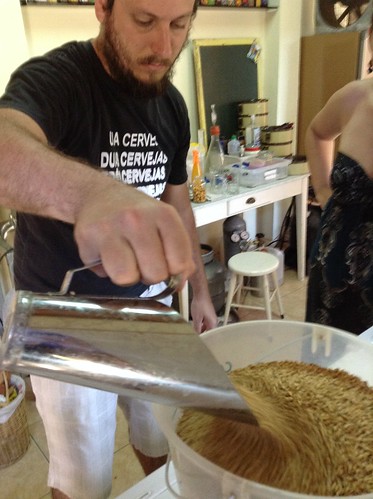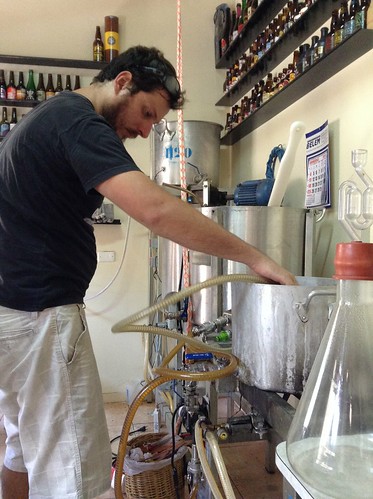One of Brazil’s best-kept secrets might be its craft beer. When I lived in Paraná’s capital city Curitiba in September/October 2014, I met a lot of good people, including many craft brewers making some very creative and tasty beers.
Among those brewers are Mário Coppini of Bier Hoff Micro Cervejaria and Murilo Foltran of DUM Cervejaria, pictured below, funny guys who were generous in sharing their brews.
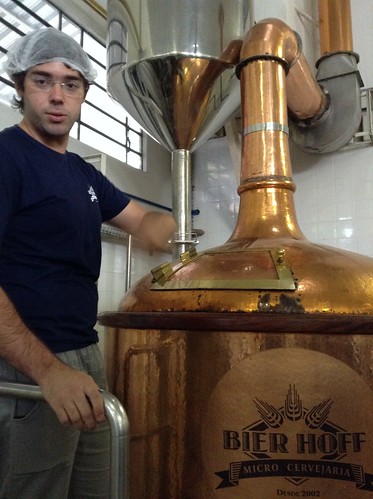
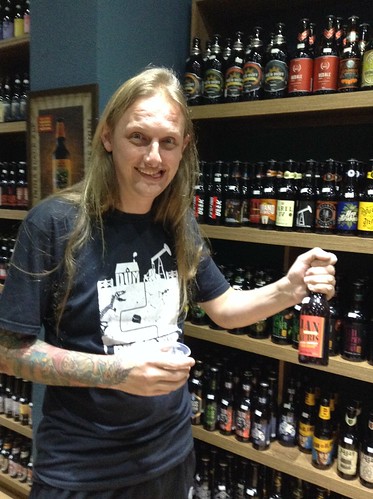
After two months away, I got back to Curitiba and reconnected with the startup brewing scene. I also met up with Brazilian friends simply excited about sampling the region’s many new beers with me (that includes Juliana of Curitiba Hostel!).
One spot in downtown Curitiba for doing that is the beer shop B33R Club.
I had first wandered into B33R Club one chilly night in October, finding a cozy room with a dozen people drinking from creatively labeled bottles of beer (one popular brew is called “F#%*ING Beer”).
Three months later, I wandered back inside B33R Club and reconnected with the owner Marcio Mathias and his employee Hammurabi (not his real name — I can’t remember his real name). They’re pictured left and holding bottles of their favorite Brazilian beers (one of them is DUM Petroleum, made by the aforementioned Murilo Foltran).

As a welcome-back-to-Curitiba gift, Marcio gave me a bottle of a new beer called “Chernobeer” (named after Chernobyl, site of the 1986 nuclear accident in Ukraine that caused thousands of deaths). Of course, Marcio had no idea that I myself have strong Ukrainian heritage, but the name of that beer is kinda horrible even if you’re not Ukrainian.
I noticed B33R Club was also selling New York-based Brooklyn Beer for $3 to $5 per bottle, which is about half the price of local Brazilian-made craft brews, so I started asking as to why. Marcio said it was because Brazil pays high taxes on imported ingredients such as hops and malt, and also high taxes on alcohol-production.
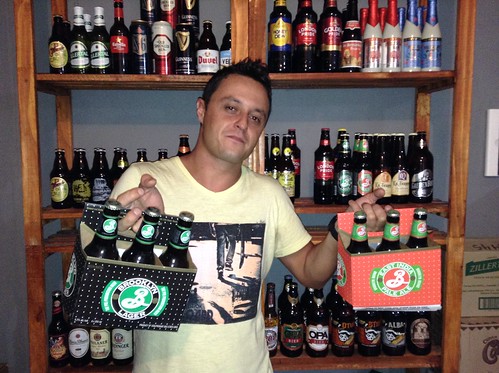
All that questioning turned into a story for Americas Quarterly last week about Brooklyn Beer’s rapid growth in Brazil, which is reflective of how Brazilians are increasingly drinking craft beer rather than just the bland and watery piss selling by the names of Brahma and Skol. It’s also reflective of Brazilians’ affinity for all things associated with Brooklyn, whose hipster style is widely copied here (it’s even the name of a trendy Curitiba cafe chain).
At the same time, Brooklyn Beer is crowding out local brewers. That includes people like Francisco Seegmueller of Bastards Brewery, which started in March 2014 and is now brewing about 12,000 liters a month. Small breweries such as Bastards are also hurting from the economic recession.
Backing up a step, why the name “Bastards”?
“We just got together and started making beer,” Francisco told me during a tour of his brewery outside Curitiba in January. “We didn’t follow any school, the German school or the American school. We just made beer. We’re the bastards.”

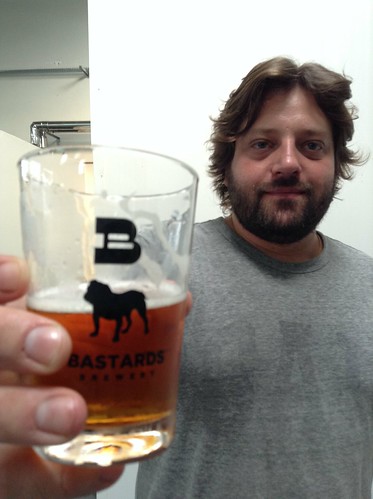
I had met Francisco at a beermaking party at the house of Henrique Cruz. I had first met Henrique last September at the beer store Império Cervejeiro, where he is a manager and also something of a beer curator, deciding the selection and organizing beer tastings.
All this Brazilian beer had inspired me to try my own hand at beermaking, and Henrique offered to show how it’s done.
Henrique saved up $6,000 to take beermaking classes Siebel Institute of Technology in Chicago, but then an opportunity came to buy beermaking equipment from a friend. Fortunately for me, that meant that I could attend something of a beermaking school in Henrique’s garage-turned-brewing-lab, full of scales, burners, refrigerators, tubes, thermometers, siphons, pots, beakers, flasks, clamps, etc.
Even more fortunately, Henrique had plenty of beer leftover from his previous batch, which fueled us through a full day of brewing.

